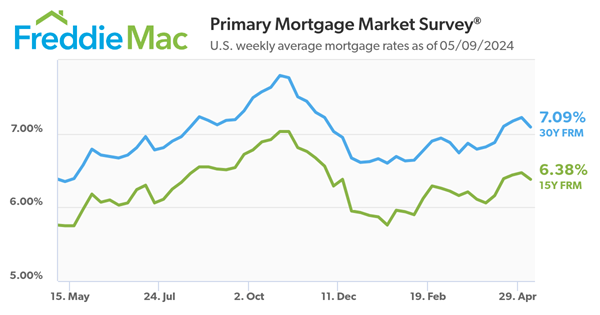Advertisement
Advantage Systems’ Web-based reporting tool supports growth of net branches
Forward on reverse: Fixing California's SB 1609 : A conversation with James E. Veale of Security One Lending: Part IAtare E. Agbamu, CRMSreverse mortgage law, annuities, Housing and Economic Recovery Act of 2008
James E. Veale believes California's 2006 reverse mortgage law,
SB 1609, needs improvement to better protect seniors and strengthen
reverse mortgage origination practice in the Golden State.
Among other provisions, SB 1609 barred California reverse
mortgage lenders from selling annuities to borrowers or referring
seniors to annuities sellers before loan closing or the expiration
of borrowers' right of rescission. True to its pace-setting
tradition, newly enacted federal law, the Housing and Economic
Recovery Act of 2008, followed California's SB 1609 lead in this
area. But Veale wants a better law.
A senior vice president for government affairs at Security One Lending,
James came to the reverse mortgage industry in 2005, following a
distinguished career as a certified public accountant (CPA) and
partner in charge of taxes with the CPA firm of Miller, Kaplan, Arase &
Company LLP. He did tax work at Kaiser Steel and Fluor
Corporation. At Arthur Young & Company, Veale handled auditing
and tax issues. Along the way, he gave tax advice to many small
businesses and to some of California's most prominent families.
Below is a transcript of part one of our conversation.
Reconciling state law with federal law
Atare E. Agbamu: Jim, a review of SB 1609 suggests that most of the
issues were already covered in federal laws and regulations. Why
was SB 1609 necessary?
James E. Veale: California lawmakers wanted to ensure that
counseling and other requirements of the home equity conversion
mortgage (HECM) would apply to proprietary reverse mortgages. One
of the law's goals was to reconcile HECM requirements with other
reverse mortgages offered in California.
Background check, licensing, education, face-to-face
meeting
AEA: What are some existing issues SB 1609 didn't cover?
JEV: I think the primary issue is the protection of
seniors from originators who have criminal backgrounds and are not
trained to offer this product to a protected class—seniors.
Specifically, I would like California to require (and I have
expressed this to California State Sen. Alan Lowenthal) reverse
mortgage licensing. Reverse mortgage originators should be required
to pass an examination and a criminal background check. For
renewal, there should be a requirement for continuing education so
that originators are up to date and are better qualified to match
reverse mortgage products to the needs and financial goals of
borrowers.
Second, I firmly believe that face-to-face origination meetings
should be mandated. This meeting will help seniors better evaluate
the originator and determine if they want that person involved in
their personal finances.
AEA: You have a point there. Someone once said that
trying to do reverse mortgage counseling over the phone is like
trying to get a haircut over the phone. Could that analogy be
applied to originating reverse mortgages over the phone?
JEV: Exactly! One piece I would like to add to the renewal
issue is that there should also be a criminal background check
required each time the license is renewed.
AEA: On the education requirement, who is going to
design and evaluate the exam? The state may not have the expertise
to do that yet. As you know, it is a different animal from
traditional forward mortgages.
JEV: One of the things we are all excited about in the
industry is that the National Reverse Mortgage
Lenders Association (NRMLA) is creating a professional
credential. One of its features will be an examination that can be
used to examine potential licensees for state purposes. You and I
served on the committee that is working on the credential.
AEA: Are you suggesting that California should use
NRMLA's credential template?
JEV: Absolutely! I believe that the work behind the NRMLA
credential is more than adequate, and the state should be happy
with the standards being developed.
AEA: How about people who are going to say, for example,
"Hey! The California reverse mortgage law is too tough; I am moving
to Nevada because it is easier there." From Nevada, they may be
able to solicit California reverse mortgage business.
JEV: That is a problem right now. In the last year,
out-of-state originators have been entering California, trying to
finance the sale of annuities through the origination of reverse
mortgages, which, under state law, is illegal. California is having
difficulty enforcing this part of the law.
AEA: So you would also like to see restrictions placed
on out-of-state solicitors, right?
JEV: That's exactly right! In other words, the only way an
individual could originate a reverse mortgage within California is
if they hold a current California reverse mortgage origination
license.
AEA: And you can't transfer that license to a surrogate,
right?
JEV: Absolutely not! It should not be a transferable
license. The licensee must be the party originating the reverse
mortgage.
Multiple oversight, weak enforcement
AEA: What of exemptions? In some states, for example, some
professionals may be exempt from licensing if they originate, say,
just three loans a year. Do you see exemptions of any kind in the
California law you envision?
JEV: No. Enforcement is hard enough as it is. I'm sure we
both appreciate how hard it would be to determine if an originator
is in violation of a threshold licensing rule, especially regarding
those changing employers or moving in state. Tracking would be
difficult, if not practically impossible, in most cases.
One of the things that makes this law unwieldy is no single agency
has responsibility to enforce and discipline those who are in
violation of SB 1609. At least two state agencies oversee
it—the California Department of Corporations for
state-chartered banks and California financial lenders, and the
California Department of Real Estate for those originating under
real estate license laws. The national banks present their own
enforcement issues that are not easily resolved. You can see how
conflicts, differences and uneven enforcement, among other
problems, could quickly develop when more than one agency has this
responsibility.
With reverse mortgage licensing responsibilities under one state
agency, enforcement would be easier, more effective, more efficient
and far more equitable.
AEA: Besides the multiple agencies problem, do these
agencies have the budget to do enforcement? California is a fairly
large state.
JEV: As most of us are aware, California is having
budgetary problems right now. That was one of the questions Sen.
Lowenthal brought up. My response is that the licensing program
should pay for itself. Fees could be assessed for things like
license renewal, the examination, the issuance of the original
license, administrative actions such as notification of changes in
address and other items or so that the state does not incur a loss
by creating this license program.
AEA: It appears that key provisions of SB 1609 were
incorporated into the just enacted federal Housing and Economic
Recovery Act of 2008. Are you happy with this development? Or is
there anything you don't like about the new federal law?
JEV: Well, I have to give a lot of kudos to Congress for
trying to establish and maintain a national registry of loan
originators. However, I don't think just having a registry alone is
enough to protect a vulnerable class like seniors. Therefore, we
also need examinations to screen out people who do not understand
the products. I do not believe the federal government needs to
oversee this process. Certainly, it could be established and
maintained by the states just like licensing of attorneys, CPAs,
real estate brokers and other professionals. However, just having
an originator registry is a noble step forward.
"Income" is a concern
AEA: You are concerned about the industry's habit of calling
reverse mortgage proceeds "income." Why does this habit disturb
you?
JEV: In this law (SB 1609), there is a section that
requires originators to give the borrower a statement which states:
"A reverse mortgage is a complex financial transaction that
provides a means of using the equity you have built up in your home
... as a source of additional income."
The problem with the word "income" is that under financial
accounting, and even tax law, income is something you receive and
do not have to repay. So, to put this provision into the law sounds
like the state is saying that the proceeds do not have to be
repaid. We had one couple turn down a reverse mortgage when they
read this section because they felt the state was warning borrowers
that the proceeds are taxable income. This was their only objection
throughout the process. Despite their needs, they decided not to
move forward.
So, the word "income" is confusing because it does not express
what reverse mortgage proceeds actually are—loan
proceeds.
AEA: You are correct.
Selling annuities to seniors: Un-leveled playing field,
legal risks
JEV: And Atare, there is another part of this law that I
would like to quickly address.
AEA: Go ahead.
JEV: In SB 1609, beyond the requirement that the purchase
of an annuity cannot be required as part of a reverse mortgage
transaction, the following is also mandated: "A reverse mortgage
lender or broker arranging a reverse mortgage shall not ... refer
the borrower to anyone for the purchase of an annuity prior to the
closing of the reverse mortgage or before the termination of the
right of the borrower to rescind the reverse mortgage
agreement."
Even though the sentence appears simple and straightforward, it is
also of great concern as to its potential legal implications. For
example, an originator refers a borrower to the borrower's own
property insurance agent to obtain more homeowner's insurance
coverage as stipulated by the underwriter. During the meeting, the
insurance agent convinces the borrower to use a significant portion
of the proceeds to get an equity-indexed annuity. The following
year, both the borrower and the insurance agent died. The
borrower's heirs remembered that the originator had recommended
that the homeowner's policy coverage be increased and that the
borrower purchase an equity-indexed annuity, though the reverse
mortgage originator knew nothing about the annuity purchase and
would have discouraged any such transaction.
Even if the originator can prove that he had no knowledge of the
annuity acquisition, imagine the time and legal costs incurred if
the heirs seek recourse or legal action against the originator.
Now, what happens if the originator cannot adequately prove he had
no knowledge of the annuity transaction? This wording in the law
needs to be changed.
Atare Agbamu is the author of Think Reverse (The
Mortgage Press, 2008) and more than 100 articles on reverse
mortgages. He is a reverse mortgage specialist in Minnesota and an
adviser to older adults, their families, professionals and
institutions across the country. He may be reached by phone at
(612) 203-9434 or e-mail [email protected]. To
offer comments on his book, visit www.thinkreverse.com and
click on the "Bookfeedback" page. To place an order, log on to reverse.mortgagepress.com.
About the author





